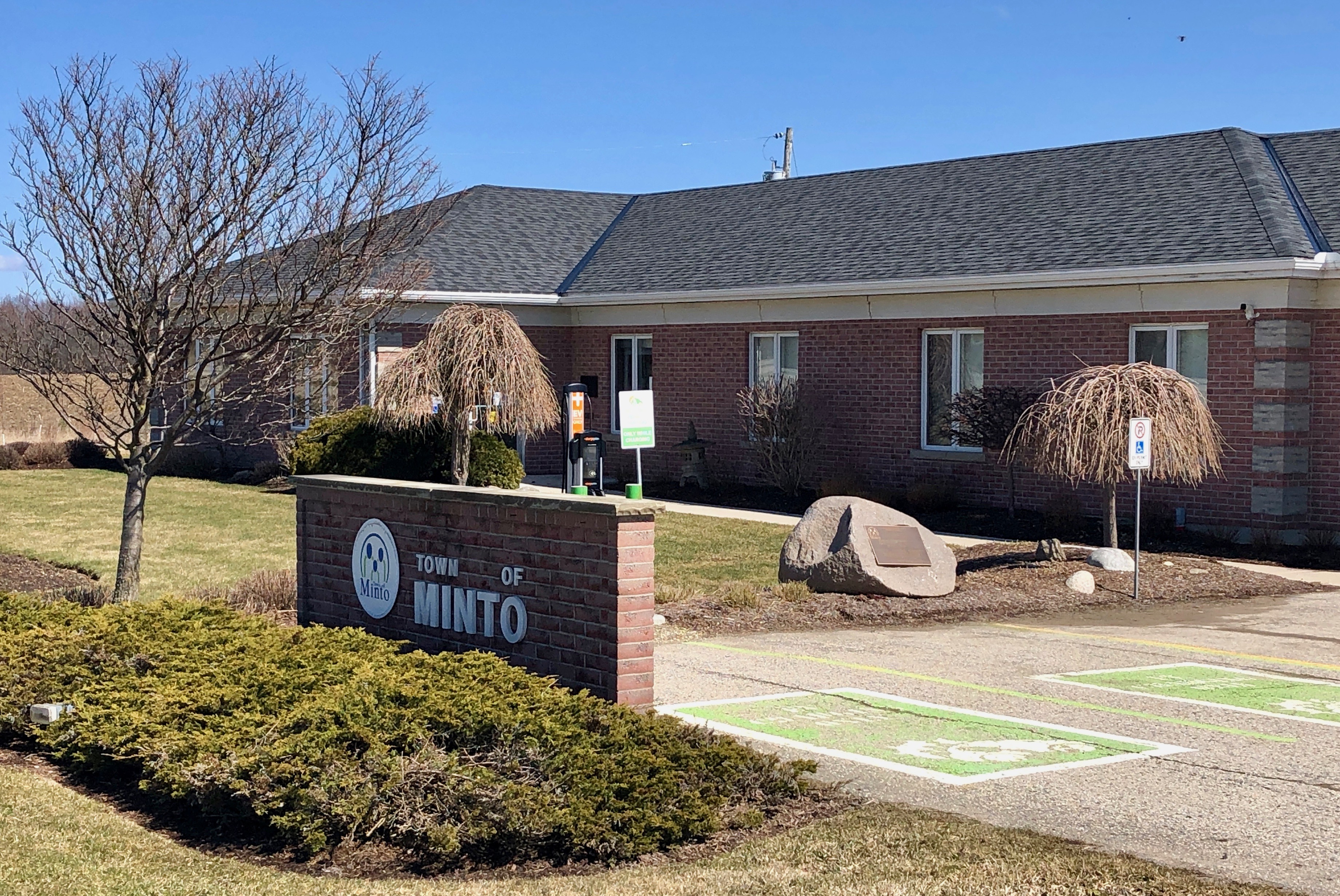MINTO – The town’s treasurer says it’s still too early to tell much about the financial impact of the COVID-19 pandemic on municipal finances here.
Gordon Duff presented a first-quarter financial review to town council during a video conference meeting on May 20.
However, he noted the figures presented only cover the first four months of the year.
“As we’re all too well aware, things changed in mid-March,” said Duff.
“There isn’t a huge impact from COVID at this time. We had to close some arenas a bit early and cancel some programs, but other than that is more like a normal quarter,” said Duff.
As of March 31, on tax-supported budgets, the town has incurred expenditures of $2.167 million, or 22.7% of the $9.548 million expenditure budget.
Excluding taxes, revenues of $1.035 million, or 21.1% have been received of the $4.895 million budget.
For non-tax-supported budgets, the Town has incurred expenditures of $802,000, or 19.8% of the $4.043 million expenditure budget. Revenues of $998,000, or 24.7% have been received of the $4.043 million budget.
The first instalment of interim property taxes was due on March 27. At the end of the first quarter, the town has received 89% of the anticipated amount of $3,505,000.
“The 2020 first quarter results are consistent with the town’s expectations and are in line with historical trends. For example, for tax supported budgets the 2019 first quarter resulted in 20.9% of expenditures incurred and 20.1% of revenue (excluding taxes) received,” stated Duff in a written report.
“We did have a tax due date at the end of March and we were a little bit worried to see how it would come in,” Duff told council. “And we did collect 89 per cent, versus about 100 per cent that we usually get because many people pay the May and March instalment at the same time.”
In terms of pandemic response, Duff noted, “Our biggest unbudgeted expenses were trying to get everybody up and running so we could work from home, at least for the office staff.”
“The next four weeks will tell a lot more than what’s being told now,” commented deputy mayor Dave Turton, who asked Duff about the impact on water and wastewater usage and revenue due to “people staying home.”
Duff explained the general trend shows residential consumption is increasing.
However, like many municipalities, Minto is seeing an offsetting decrease in commercial and industrial usage.
“I think for us were seeing likely a 10 per cent increase (in residential use), but offset by commercial industrial it is down by three to five per cent,” Duff estimated.
“Initially I thought we’d see a bigger reduction in consumption.”
“So Gord, in your crystal ball then, our recreational revenue is null and void?” Turton asked.
“(In) four weeks, we’ll know,” Duff predicted. “We don’t know what we’re doing for the summer yet. In four weeks it’s going to be the end of June and we’re going to know.
“For example, are we running baseball, soccer, swimming pools, day camps? I know today’s announcement (from the province) said no overnight camps but we’re not in that business. So I think that’s the big impact. What are we doing with our facilities.”
He added, “Again, the studies all point to being outdoors is good, being indoors in bad. So maybe we will be able to do some summer activities.”
Councillor Ron Elliott pointed out any loss in recreation revenue would likely be more than offset by a decrease in expenses.
“I’m looking at recreation revenues, money we’re pulling in for ice time, or rental of halls,” said Elliott.
“We probably save money by not having those events going on because it costs us more to operate than … revenue we pull in,” he added.
“Certain events we probably do quite well; other events it’s more of a community service,” replied Duff.
“I think most of our things are community service in many ways,” Elliott stated.
Mayor George Bridge said, “Pools, day care and summer camps – we love to do them, but basically if they break even we’re lucky.
“But in most cases they’re subsidized, which is fine, that’s part of why we have a great community.”
Bridge continued, “The other big concern for me … going forward if we’re allowed to open some of these facilities, how much more cost will be involved in keeping them open with extra cleaning and making sure things are done right?”
For example, Bridge suggested higher staff-to-participant ratios might be required, or caps placed on the number of participants, if programs like day camps end up going ahead.
“But in those cases, I think other levels of government might come across with some help,” the mayor suggested.
Bridge and several councillors commended Duff and treasury department staff on the new format for interim financial reports.
“I’m just thrilled to see a report like this,” said councillor Jean Anderson.
“This gives me a much better perspective on where we’re at … and I recognize that it’s going to change a lot. COVID’s going to have some impacts we haven’t seen yet.”
Bridge noted the County of Wellington is planning a budget update in the fall and suggested, “Maybe we’ll do the same thing.”
Bridge said the update could be “a bit of a deep dive” to “see where we are going forward as far as budgets go.”
CAO Derrick Thomson said staff is working on a budget forecast report that may be ready as soon as the next council meeting, scheduled for June 2.
Council accepted the budget review report for information.




